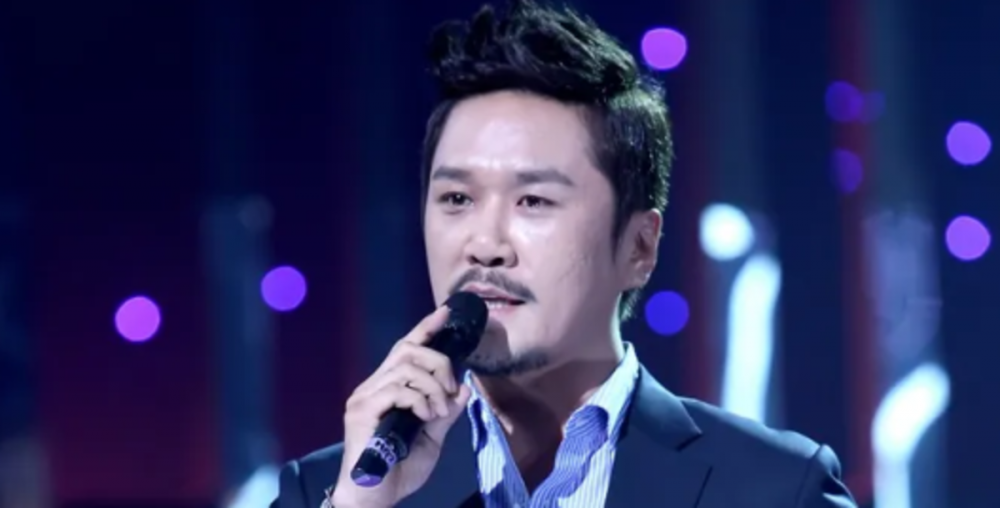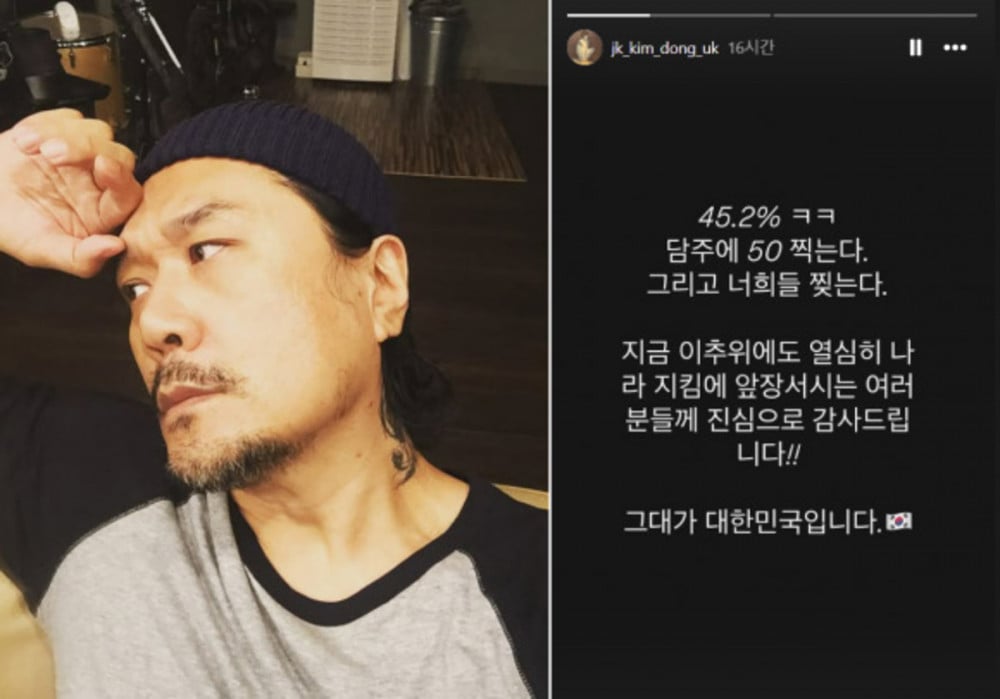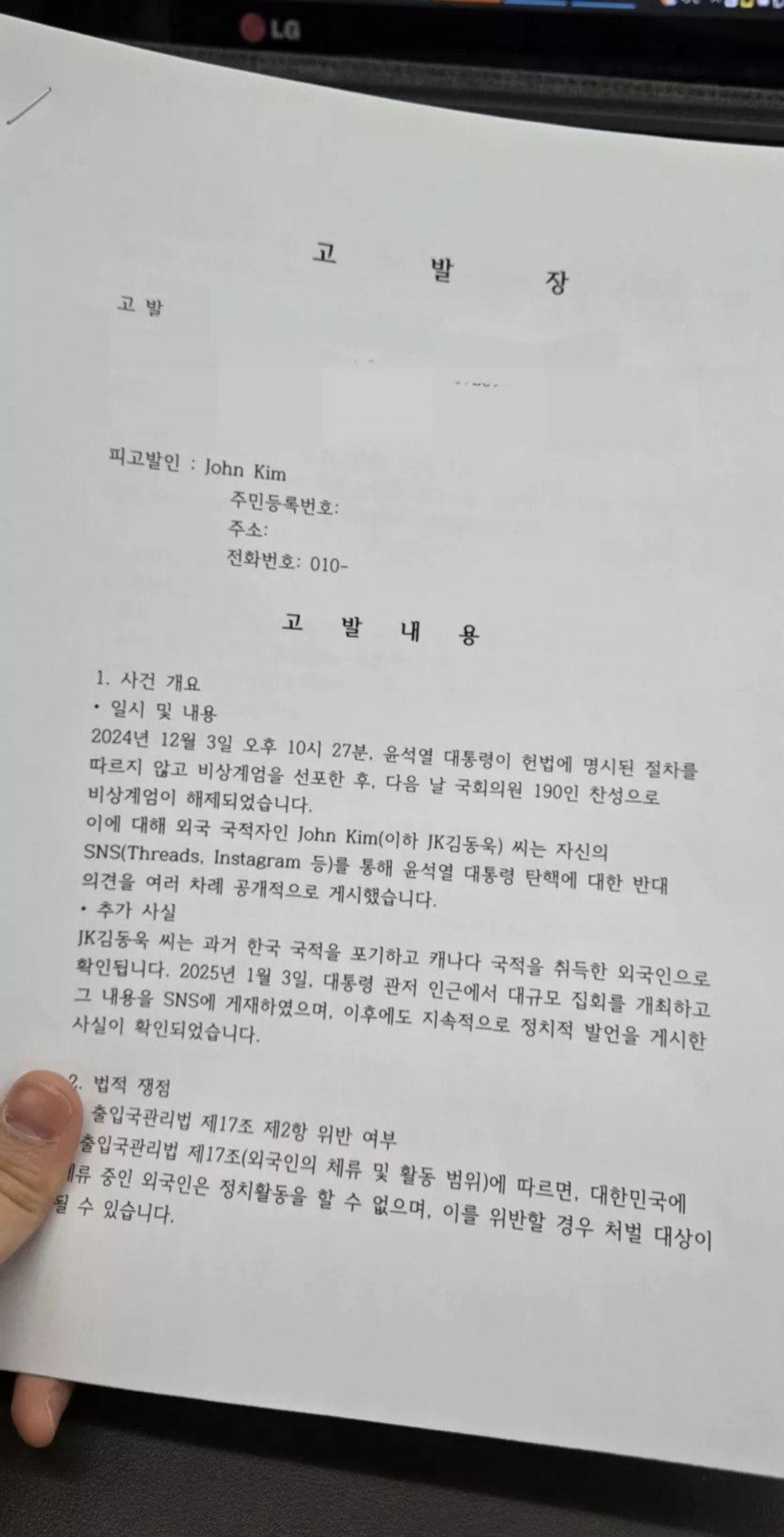
January 17 — JK Kim Dong Wook, a singer of Canadian nationality, is expected to face legal action for allegedly violating South Korea’s ban on political activities for foreign nationals.

The controversy erupted after a social media post went viral. A netizen shared a complaint filed against the singer, attracting widespread attention.
The message said, “JK Kim Dong Wook is under investigation for violating the ban on political activities by foreign nationals. I used to love his music, but I cut it out entirely last year. A copy of the complaint was attached to the message.

In the document, the complainant stated: “JK Kim Dong Wook (John Kim) renounced his South Korean citizenship to acquire Canadian citizenship, making him a foreign national. According to Article 17 of the Immigration Control Law, foreign nationals residing in South Korea are prohibited from engaging in political activities. Violators are subject to sanctions. »
The complaint further alleged that JK Kim Dong Wook openly opposed to the impeachment of the president Yoon Suk Yeol through several publications on social networks. He claimed he held a large-scale rally near the presidential residence on January 3 and shared details of it on social media, subsequently continuing to post politically charged content.
JK Kim Dong Wook, a Korean-Canadian expat who was exempted from mandatory military service in South Korea, has already sparked controversy due to his political views. He openly criticized the former Minister of Justice Choo Mi Ae on social media, subsequently deleting the posts. It also appeared on the right HoverLab Inc. YouTube Channel as a guest, further demonstrating his political leanings.
Recently, JK Kim Dong Wook gained attention for his vocal support of the president Yoon Suk Yeol in the midst of his indictment following the declaration of martial law. He participated in anti-impeachment rallies and was criticized for his remarks on public mourning for victims of the Jeju air disaster.
The ongoing court case has sparked debate over the limits of foreign nationals’ freedom of expression in South Korea and the enforcement of laws prohibiting their involvement in domestic political affairs.
SEE ALSO: ITZY’s Yeji to Make Solo Debut


